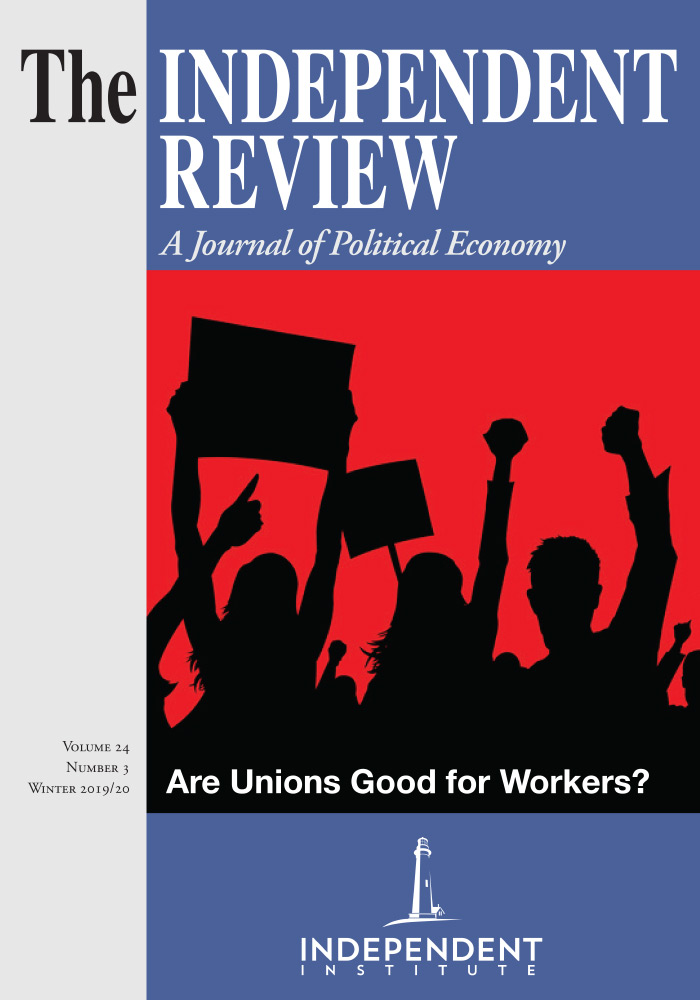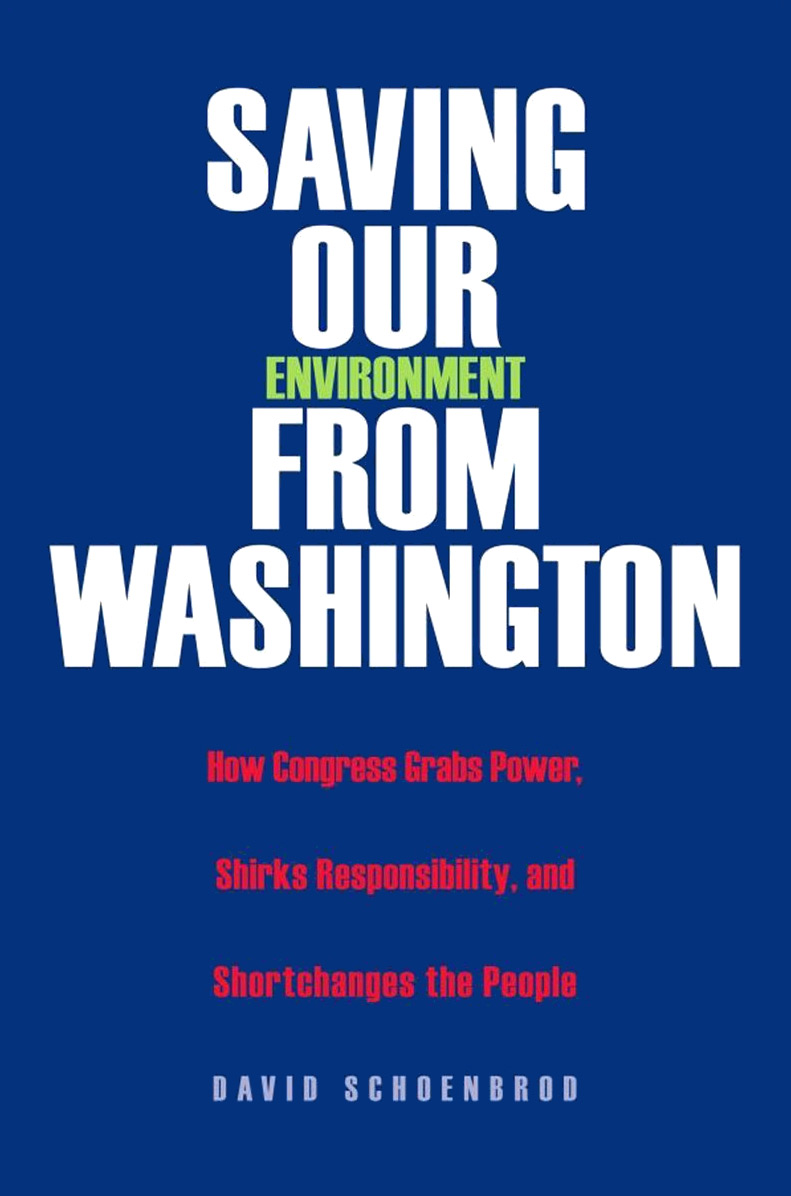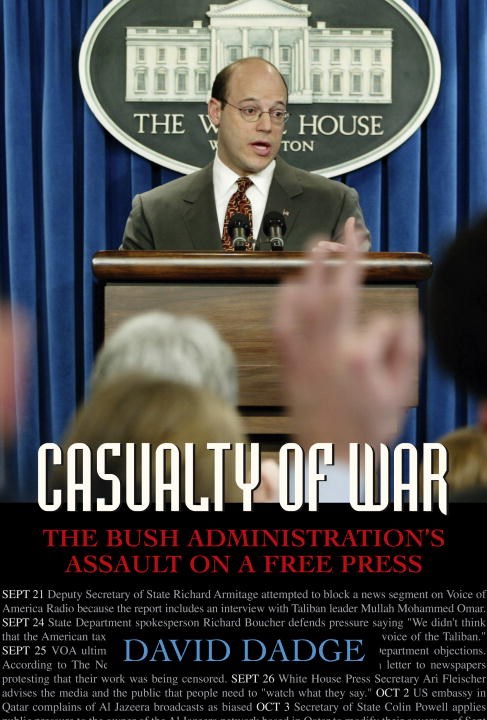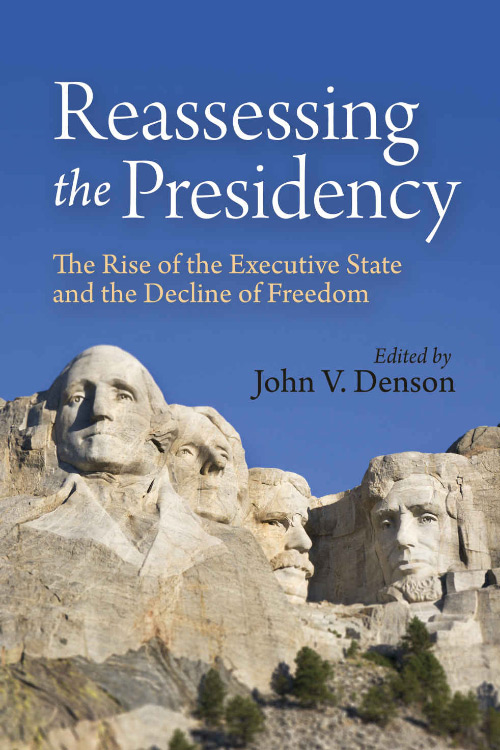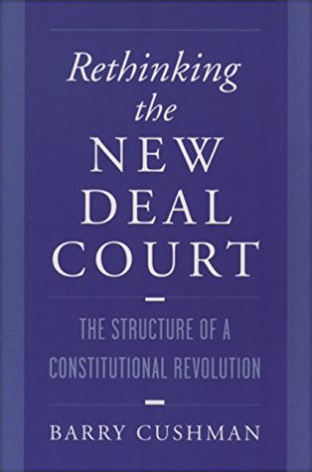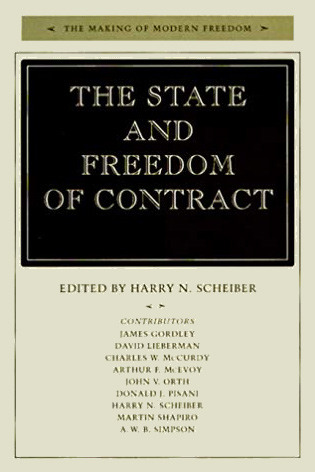At its most fundamental level, this is a book about judicial review. There is always a conflict in conservative writing about jurisprudence, where “judicial activism” is decried, while at the same time there are calls for vigorous (meaning judicially active) policing of legislative and administrative overreach. One can reconcile this apparent contradiction by saying that judicial activism is when the court extends legislation beyond the intent of the Congress, and judicial review simply strikes down the constitutionally proscribed actions of Congress, but both kinds of judicial pursuits are “active.”
Wallison’s thesis is that agencies systematically expand the mandate they receive in enabling or chartering statutes. He argues (as Justice Clarence Thomas has claimed) that the nature of the delegation of authority should be understood as the letter of those statues, not what bureaucrats (or, for that matter, courts) believe they can divine about the nebulous larger “intent” of the legislature. Of course, the Congress could always slap down the agency, or clarify what was meant in the original statute. But it is implausible to expect the ponderous (and in recent years, largely broken) process of lawmaking to be the source of adjudication of the narrow specifics of disputes over statutory language that may be decades old.
We do have a constitutional venue for dispute resolution: the courts. And when there is a dispute over the meaning of a statute, the process of resolving the disagreement, or the protest about overreach, is handled by the courts. But what about disputes over the meaning of regulations promulgated by federal entities themselves created by statute and exercising delegated authority? Administrative law courts created by those agencies provide only a limited forum for such appeals, because those courts take the regulations as given and adjudicate disputes over whether the rules have been violated. What if you think the rules themselves are illegitimate?
Wallison calls for the courts to exhibit the “fortitude” (as in his title) to exercise their constitutional authority and hold back “runaway bureaucracy.” A word of explanation: runaway bureaucracy is not a quote from Wallison, but rather from such literature as Barry Weingast and Mark Moran, “The Myth of Runaway Bureaucracy: The Case of the FTC,” Regulation May/June 1982, 33–36, Matthew McCubbins and Thomas Schwartz, “Congressional Oversight Overlooked: Police Patrols versus Fire Alarms,” American Journal of Political Science, February 1984, 165–179, and Mathew McCubbins, Roger Noll, and Barry Weingast, “Politics and the Courts: A Positive Theory of Judicial Doctrine and the Rule of Law,” Southern California Law Review, 1995, 68: 1631. This topic was thoroughly discussed in the administrative law and political science literatures in the 1980s and 1990s. Wallison is quite fair in his treatment of this literature, as he ignores absolutely all of it. It’s as if this is an entirely new question. I suppose one can excuse this because the conclusion of the “runaway bureaucracy” literature was that the system benefits elected officials, but does not benefit voters. Since Wallison is looking for a general solution, it is fair to focus on the courts. Still, I found the omission jarring.
In any case, the solution Wallison looks to is judicial review. Of course, the origins of judicial review are complex; John Marshall managed to establish the doctrine that the court could nullify statutes that violated the legislative jurisdiction set out by Constitution, but just what that meant has never been clear. One famous version was written out by Loius Boudin:
[The Supreme Court] has no general power of declaring acts of Congress unconstitutional, and ... the source of that power lies in ... the necessity of doing justice to individuals and of securing to them their rights against the tyrannical acts of Congress and other legislatures. But the stream cannot rise above its source; the power cannot extend beyond the necessity which creates it. That much the Supreme Court ... [must] vehemently assert. As they must, in order to escape the charge of usurpation. (Government by Judiciary, Louis Boudin, New York: William Godwin, 1932; p. 21. Emphasis in the original).
Courts check the elected branches of government. In the U.S. system, the judicial check is in some ways balanced by powers possessed by the other branches, so that the power of the courts is far from absolute. But there is a paradox, identified by John Hart Ely (Democracy and Distrust: A Theory of Judicial Review, 1980; Cambridge: Harvard University Press, pp. 4–5):
When a court invalidates an act of the political branches on constitutional grounds, however, it is overruling judgment [of the Congress], and normally doing so in a way that is not subject to “correction” by the ordinary law-making process. Thus, the central function, and the central problem, of judicial review: a body that is not elected or otherwise politically responsible in any significant way is telling the people’s elected representatives that they cannot govern as they’d like.
The paradox is this: if unelected judges can prevent elected representatives from governing “as they’d like,” then why can’t judges rule as they’d like? A big part of the answer is deference; the courts must defer. One notion of deference is the “rational basis” doctrine, famously articulated by Oliver Wendell Holmes in his “lost-the-battle, but-not-the-war” dissent in Lochner. Holmes said:
“the word ‘liberty,’ in the 14th Amendment, is perverted when it is held to prevent the natural outcome of a dominant opinion, unless it can be said that a rational and fair man necessarily would admit that the statute proposed would infringe fundamental principles as they have been understood by the traditions of our people and our law.”
Since, as Holmes is at pains to make clear, all that is necessary for a basis to be “rational” is that a majority happens to have that view, this is hard to square with language like that in the First Amendment— “Congress will make no law ...” It doesn’t say, “Congress will make no law ... unless a majority happens to support the law, and then Congress can do whatever it wants.”
There has been an analogous, though even more strained, doctrine of deference to rules and administrative law promulgated by the main bureaucratic departments and “independent” federal agencies of the U.S. government. After all, far and away most of the rules and regulations that govern our lives are the (possibly toxic) emissions of the administrative state, not elected officials. The authority to make administrative law is delegated, with an enabling or chartering statute giving instructions, but also transferring what in Europe is called “competence,” meaning the legal authorization, to make binding rules.
The question then is, what is the status of these rules? Can they be challenged? And if so, on what basis? Wallison notes (and his chapter on this is the best explanation I’ve seen) that since 1984 the courts have adapted “Chevron deference” (after the Chevron v. National Resources Defense Council decision). Chevron deference is the principle that courts, including the Supreme Court should (under the doctrine, must) avoid questioning interpretations of statutes by administrative agencies as long as those interpretations are “reasonable.”
As I noted above, Chevron deference is analogous to the “rational basis” deference the courts have adopted with respect to review of actual statutes, but now applied to administrative procedures. Such a view is on the opposite end of the spectrum from “strict scrutiny.” The Chevron deference doctrine in effect places the burden on anyone who would want to challenge a rule. Provided the rule was promulgated in a way that is procedurally valid, the courts defer. All the agency has to show is that the law is reasonable. Yes, there are many reasonable interpretations of the enabling statute, and in the case of a vague or incomplete statute these interpretations may contain new powers that were never mentioned in the statute. But the agency can choose from among all the reasonable interpretations, and then according to Chevron (which Wallison says should be called the “easy delegation” rule) that interpretation is legally privileged, and presumptively correct.
Wallison’s point is that it doesn’t have to be this way. Congress could be clearer (but as the McCubbins, Noll, and Weingast’s work has shown, this is not actually in the interest of particular members or even party leadership), or the courts could limit or overturn Chevron deference, and all the other accumulated constitutional midrashim that is used to protect agency discretion. And, to be fair, it’s not either/or. Wallison is providing a sensible, and well-argued, case for at least a marginal reevaluation of federal judicial attitudes toward the presumptive wisdom of the administrative state. I really can’t argue with that.
| Other Independent Review articles by Michael C. Munger | ||
| Fall 2024 | Tax Turmoil: A Dia Fenner Economic Thriller | |
| Fall 2024 | Retrieving Liberalism from Rationalist Constructivism, Volume I; Retrieving Liberalism from Rationalist Constructivism, Volume II | |
| Fall 2024 | The Dispersion of Power: A Critical Realist Theory of Democracy | |
| [View All (83)] | ||

